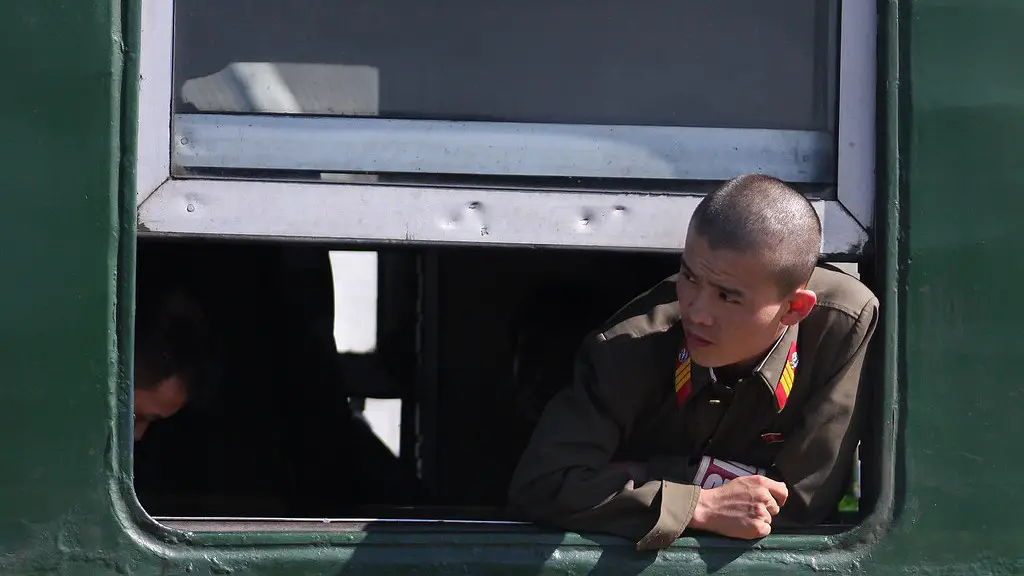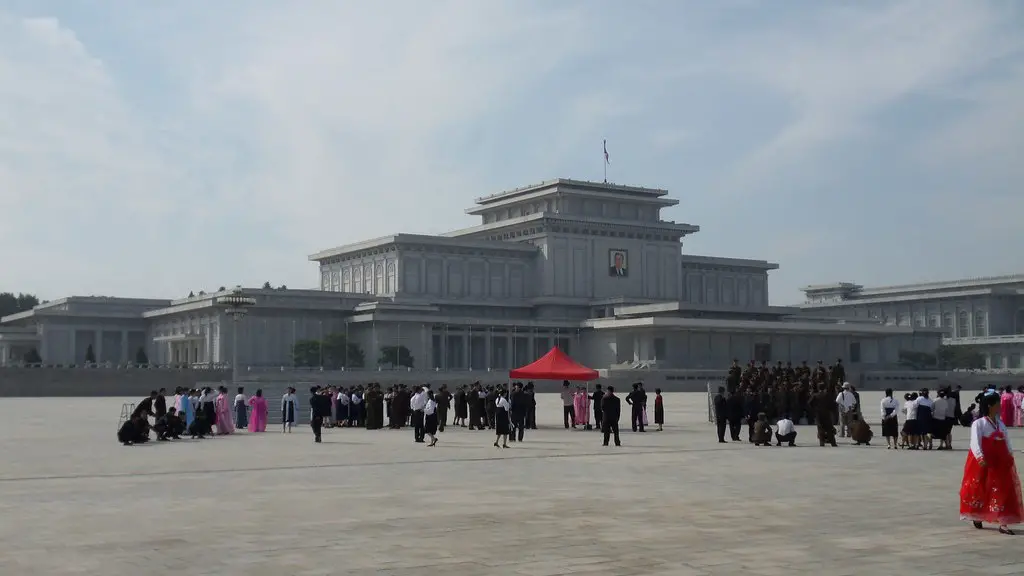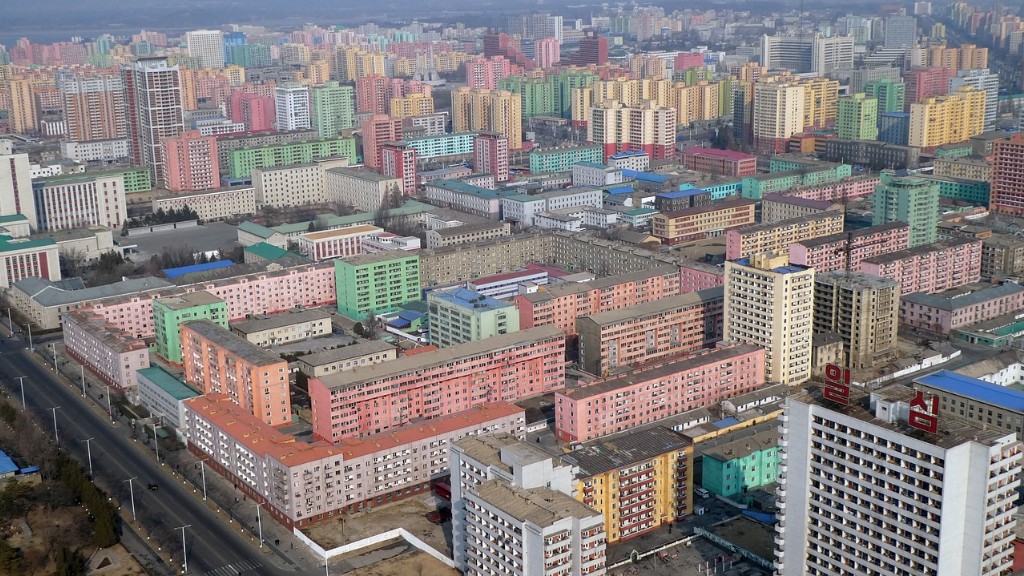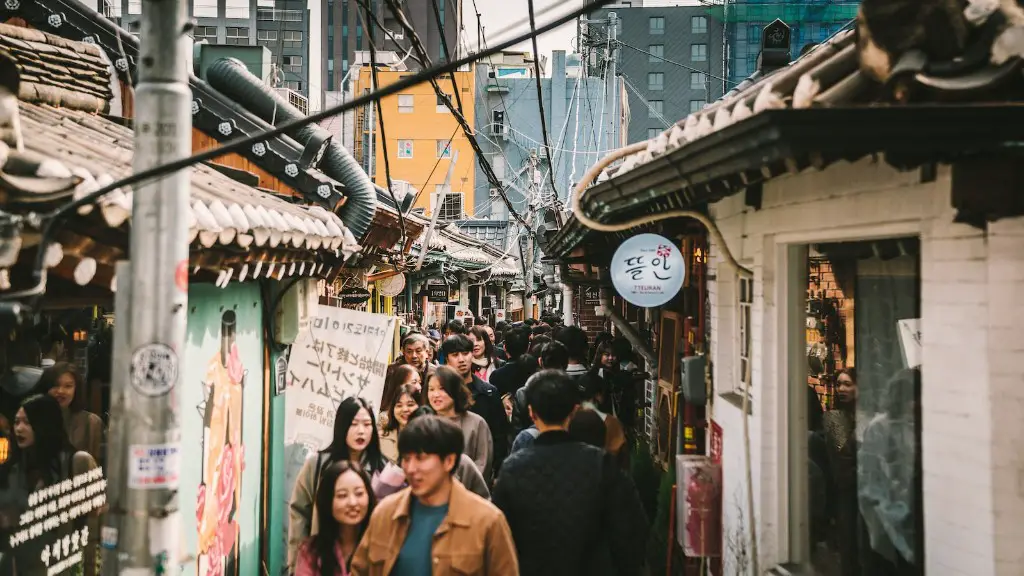What Was North Korea Before It Was North Korea?
North Korea has a long and complicated history that dates back thousands of years. For much of its early history, the area that is now North Korea was part of the ancient Korean kingdom of Gojoseon. It is believed that Gojoseon, the first Korean kingdom, was founded by the legendary god-king Dangun in 2333 BCE. At different times throughout its history, the area that is now North Korea was part of various other dynasties and kingdoms, including the Goguryeo, Balhae, and Later Silla kingdoms.
In the late 19th century, Korea was annexed by Japan as part of the Sino-Japanese War in 1895. This period is known as the annexation period and lasted until Japan’s defeat in World War II. During this period, Japan controlled much of the Korean peninsula and significantly shaped its culture, politics, and language. This period also saw millions of Koreans fleeing the brutal Japanese occupation.
It was during this time in 1945 that North Korea was formally declared an independent nation, with Kim Il-sung as its first leader. However, this independence did not last long, as the country was soon divided in two by the Cold War powers of the United States and the Soviet Union. As part of this division, North Korea declared itself a socialist state in 1948 and began to develop its own distinct style of governance, often referred to as Juche, or self-reliance. This period also saw North Korea become one of the key players in the Korean War, lasting from 1950 to 1953.
North Korea has been led by the same family since its formation; Kim Il-sung’s son and successor, Kim Jong-il, took control in 1994 and ruled the country until his death in 2011. Kim Jong-il was succeeded by his son, Kim Jong-un, who is still in power today. The Kim family has maintained an authoritarian and repressive regime since taking power, and both the international community and human rights groups have criticized the country for its dismal human rights record and lack of free speech and free press.
Conflict
Despite its vocal stance against foreign intervention, North Korea has been involved in a number of conflicts with South Korea and other countries in the region. The most notable of these is the Korean War, which lasted from 1950 to 1953 and saw North Korea pitted against the United Nations forces, led by the United States. The conflict ended in an armistice, with the two countries technically still in a state of war. In addition to the Korean War, North Korea has also been involved in a number of other regional clashes and skirmishes, often in an attempt to assert its political will.
In recent years, the tensions between North Korea and the United States have been especially high. In 2017, the two countries faced off in what was dubbed “the crisis of the century.” After North Korea carried out a number of missile tests and nuclear weapons tests, the United States responded with threats of military action and sanctions. The situation eventually cooled down, but North Korea still remains a volatile and unpredictable player on the international stage.
Politics
North Korea is a one-party state ruled by the Korean Workers’ Party. This party exerts a powerful influence over the government and has long been the main source of power and legitimacy for the ruling Kim family. The government is highly centralized and has the authority to impose strict regulations and control over the country’s population and economy. The power of the state is also maintained through a mix of propaganda, censorship, and a pervasive security apparatus.
North Korea has also been very active in international politics, often seeking to use bilateral and multilateral diplomacy to pursue its goals. In recent years, the country has made headlines for its nuclear weapons program and its involvement in a number of international disputes. The country has also been involved in a number of international agreements, most notably its participation in the six-party talks on nuclear disarmament in 2003.
Economy
North Korea has a primarily state-controlled economy. It is heavily reliant on the strong centralized control of its government and the state-run industrial and agricultural sector. The economy has long been dependent on international aid and subsidies, particularly from its long-time ally China. North Korea also faces a range of economic challenges, including a significant trade deficit, widespread poverty, and a lack of access to international markets.
In recent years, the North Korean government has sought to provide some economic reforms such as liberalizing foreign trade regulations and encouraging economic cooperation with other countries. However, the country remains one of the poorest in the world, and it is estimated that roughly half of its population lives in poverty. Despite this, the country’s economy has experienced slow but steady growth in recent years due to a number of economic successes, including the development of new technological infrastructure.
Culture
The culture of North Korea is heavily influenced by its Koreanish history, with a strong focus on traditional values such as loyalty and respect. Alongside this, the country also has a strong emphasis on socialist ideology, which is reflected in its art, language, and even its music. North Korea also has a vibrant and active entertainment industry, with traditional sports such as taekwondo and martial arts becoming increasingly popular.
North Korean culture also has a strong presence in the international community. The country’s national holiday, the Day of the Sun, is widely celebrated in Northeast Asia, while a number of popular North Korean films have become popular around the world. North Korea also has an important presence in the world of sports, with many of its athletes having won medals in international competitions and even the Olympics.
International Relations
North Korea’s international relations have been strained for much of its history due to its unpredictable foreign policy and its nuclear weapons program. While the country has traditionally had strong ties to China and Russia, in recent years it has become increasingly isolated from the international community due to its defiance of UN sanctions and other international pressure. Despite this, North Korea has maintained some diplomatic relations, including with countries such as South Korea and the United States.
The North Korean government has also sought to increase its presence in the global community by expanding its diplomatic reach. In recent years, North Korea has opened embassies in a number of countries and even participated in a number of international events, including some major international summits.
Human Rights
North Korea has a long and troubled history in regards to its human rights record. The country’s government has been widely condemned by international organizations and human rights groups for its repressive and authoritarian regime. Its abuses include arbitrary detention, torture, public executions, and the use of forced labor. In addition, the country has also been criticized for its harsh restrictions on freedom of speech, assembly, and association.
In recent years, North Korea has taken some steps toward improving its human rights record. In 2018, the government announced a number of reforms, including allowing more freedom of movement and loosening restrictions on religion. However, much more needs to be done if North Korea is to make real progress in the area of human rights.




